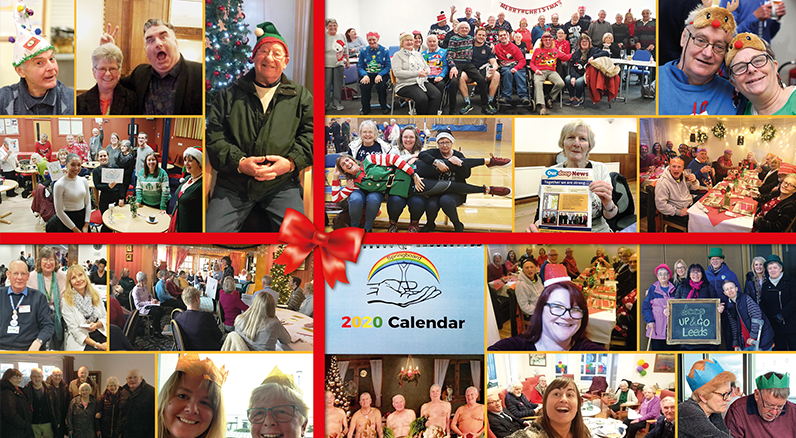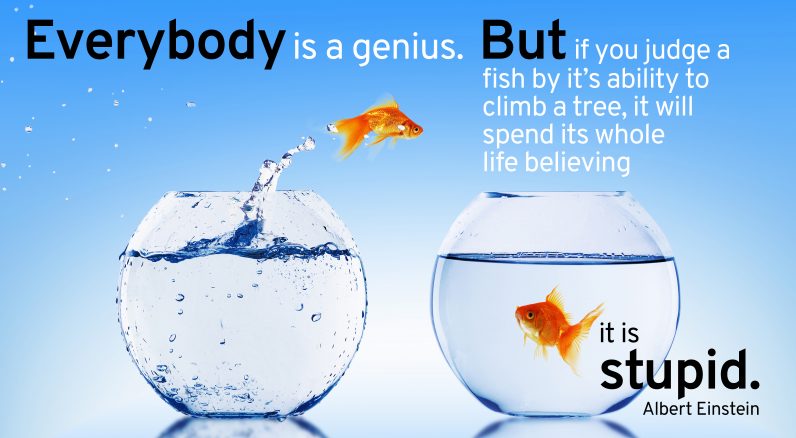Well we’re around a month into lockdown. And of course each and every one of us has our own challenges, and our own ways of coping and adapting. So what are we learning from people with dementia? Blogs, Dementia Diaries, ZOOM meetings etc. are all giving us an amazing insight. Here are just some of the reflections which have struck a chord with me…
First of all, it’s clear (and hardly surprising) that the lockdown is a massive challenge to many, if not all. It has been described to me by more than one person as ‘having dementia all over again’. Agnes explains: “It seems like forever, because I’ve been living in a different reality and I’m trying to get my bearings and understand it. I never know what day it is, I’m being more forgetful, from forgetting to turn my calendar over and using the tips and strategies… They no longer work now and I don’t understand why… It’s like – you know the bubbles, when you blow bubbles…” She explains that she is “trying to become not a human-doing, but a human-being”.
Peter agrees that he is finding it very difficult to absorb all the information about the crisis. Chris recognises this lockdown is almost like a bereavement: “One minute I was out, and the next thing is I was literally on lockdown. So, all your emotions go along with that and it is difficult to know how to make things better for yourself sometimes, especially when you have a bit of a dip because nothing seems to motivate you then.” Wayne is certainly missing his exercise: “I know that I need more exercise and I’ve not been getting out, ‘cos I ordered a pair of trousers the same size as others in my wardrobe, and they’re a little bit too snug now.” Steve is finding the lockdown tough emotionally: “It’s just being home and being vulnerable I guess. Can’t go out, can’t go anywhere, depression’s raised its ugly head again.” And Lorraine is really missing social contact and separation: “I feel totally on my own now ‘cos I live alone and it’s not an experience that I really like or appreciate… I miss, miss the contact with people desperately… Hugging my children and my grandchildren and giving them a kiss and coming in for a coffee. And the things that you really do take for granted that make your day. And at times I am struggling with this.”
It’s been common to hear people say how scared they are of losing the abilities they have – the ability to speak, to socialise, to get out and about. Glenda for example is starting to miss socialising: “I’m just worried, will I be able to cope with people when all this is over? Will I be able to go on stage and talk and do the things I usually do? I’m finding my speech is getting difficult because I’m not speaking much to other people…“ And Wendy expresses similar fears in a poem:
“When this is all over, Will we be able once more
To take a simple trip, To walk into a crowded room?
When this is all over, We’ll all need support
To discover a new normal, To discover the world once more…”
Yet others are finding that life is not greatly different. Tracey is a bit of a ‘home bod’ anyway: “Most of the time people don’t realise even just travelling, using public transport, gives me anxiety for going to my meetings… But that also causes anxiety and relief when I get home and it’s just, I haven’t had as much anxiety as I usually would do.” Dreanne also recognises that older people are “used to having to find things to do to occupy ourselves.”
At the same time, people with dementia are showing fantastic resilience, and… yes… leadership in their responses to the lockdown. They are often very good at adapting! As Jacqui points out “People with dementia are some of the best mindfulness teachers, since they are living in the moment like no one else.” Keith advises: “I keep a diary every day, I keep a record, I keep a routine established. This helps enormously in enabling the days to pass and to pass quite quickly, to pass quite positively and then tick things off as they’re done.” Agnes is also putting strategies in place, including changing the words she uses to describe the current situation: “I have a thing ‘I’m Locked Down, I’m in prison, I can’t get out’. And then my daughter changed it round and she said, ‘Mum, let’s put a positive spin on this. You’re sheltering from the C Storm, you’re self-sheltering from this virus.’ So I’m indoors and I’m sheltering from the storm and while I’m sheltering, I’m gathering information about myself and I’m learning new skills and the new thing I have learned is, today, how to use WhatsApp.” And Wendy is drawing on the reserves she has built up over a lifetime: “My glass half full personality looks for the positives to survive, whereas glass half empty folk find that so difficult and are immersed in the sadness. I wish I could give them some of my excess sparkle, some of my excess smiles…..I must really annoy them… Dementia once more has unwittingly given me a chance to forget the tragedy that’s around us. I’m sure it would be furious to know that the bubble of happiness I can enter is giving me a way to survive these times…”
Many are finding comfort and positivity in the world of nature – or in their gardens. Mhari has been enjoying digging the garden: “lots of bees, absolutely millions of lovely, lovely bees, lots of birds… and yes all seems to be OK, and I have enjoyed my little garden”. Keith is also enjoying sowing seeds and sitting outside in the sunshine: “No matter how big or small a garden one has, one can sow a few seeds in pots and get some great pleasure from them and then the occupiers are thinking about their watering and nurturing them… or just (sit) outside on a patio or garden with a cup of tea or a cup of coffee and just take in what the world is providing us on these Spring sunshine days.” Wendy is doing much more walking than usual, and is exploring new parts of her local surroundings. Like others, she has found that “this lock down has reduced traffic fumes, reduced pollution like we’ve never known it, allowing nature and the world to breathe once more. So maybe now, amidst all this trauma, we have to learn to slow down and appreciate what we have around us, whatever that may be…” And Ronald wonders: “I used to wonder where have all the birds gone. As I rarely saw and never heard them, I now know they were just stifled and crowded out by the traffic and people. All day long now I hear birds singing.”
Other people have found new joy in indoor activities. For example, Martin is keeping busy with books and virtual games: “… we’re really thrashing Amazon Prime, finishing my 10 library books, (I hope there’s no fees as I would be bankrupt), and worst of all enjoy playing games on my iPad, definitely not educational ones either… some thinking required and yes some shooting. Definitely not educational!”
Finding ways to stay connected with our communities of interest is very important. Mhari has really enjoyed a virtual sing-along with other members of the Church. Agnes has also found a way of continuing to worship: “One of my misses was not getting out to my Sunday Mass… but through Google I found another one… I was in the virtual Mass at ten o’clock this morning… it uplifted me and it made me feel really, really good…” And Chris has been joining the Thursday evening ‘clap for carers’, playing ‘For He’s a Jolly Good Fellow’ on his tenor horn to his neighbours.
For some, this pause from their activism work is a huge relief. George confesses: “The world has stopped and I love it… Well, because I am not constantly annoyed about the CCGs and others refusing to either listen, engage or act to improve dementia services. And planning my strategy. Writing another letter, another FOI. It’s been a pain in my brain for nearly ten years. And now it has gone.”
But the happiness some are experiencing is tinged with guilt. In her blog, Wendy says: “I’ve found myself disappearing into my own world, suspended in a bubble of happiness that only a ping from my phone or iPad can burst. A reminder appearing to contact a friend who is struggling, not well, confined to bed and that’s when this guilt appears. The guilt that a moment ago I was happy and unaware…” And George also realises: “I am enjoying this silence. Many are not…they will be alone, staring at walls, unable to get the food they enjoy, wander around, maybe see familiar faces passing their windows. And many will not understand why. They will not remember why.”
It is clear how much little messages and small acts of kindness mean to people. Glenda really appreciates Facebook messages and was also very pleased when her nurse phoned her : “I was feeling quite depressed first thing this morning and then the phone rung and it was my nurse Mari, and she just phoned me right at the right moment… she said my speech was better at the end than it was at the beginning of the phone call…” George reads a Wordsworth poem to comfort other Diarists who have lost friends and family ‘to lift our spirits’, and records the sounds of the stream and the birds in his garden, in the hope they will relax others. Wendy has been posting her photos on the village website “and have made so many new friends through it, some of whom I may never see and others who now recognise me as we’re out for a daily village trundle and they see the camera round my neck. I’m told my photos bring joy, which is why I carry on posting them. Some villagers are unable to get out and they say how it brings the outside world to them.” And in response “people in the village have been so kind in sending me maps of new village walks to trundle along, as long as I post the piccies at the end.”
The role that the groups in the DEEP Network play has been of great interest. It seems that those that are set up and supported by formal organisations (such as the NHS) are sometimes less able to continue their support in this crisis. Very understandable… but they also seem unable to hand over power to their members, for example by finding ways to share contact details so that members can keep in touch with each other while unable to meet physically. The smaller, less formal groups do seem more flexible in their approach. Many of course are well-used to using ZOOM to connect with each other, so that groups like the ZOOMettes and the Dementia Diarists have hit the ground running. Wendy held ‘virtual cuppas’ twice a week, which were much valued by those taking part: however she found that “Zoom is also, simply, exhausting…having to concentrate so hard at listening. At the end I close my eyes and let the mish mash in my head settle again.” She had to stop after a few weeks.
People with dementia have also been keen to use their knowledge and experience to provide others with support during the crisis. Some have contributed to our Coronavirus resources page, including tips for volunteers.
But DEEP members are also devising ways of keeping things light. We have seen the emergence of a competitive spirit – mainly relating to sunflowers and vegetable growing! Many people are also joining in the challenge to make a blanket of knitted squares – and for some, knitting is a long forgotten art! Wendy says: “I looked at the wool, looked at the needles and didn’t have a clue where to start, so that’s when You Tube came into action….first showing me how to cast on….playing it over and over for each stitch until I’d got the right number (playmate Dory had told me how many I needed)….then I watched another You Tube for how to knit the square…”
And finally of course, there are reflections about what the future might hold for all of us after this time of limbo. George for example is thinking through the wider implications of the crisis: “It seems to me that we have the real possibility that thinking about economy, entrepreneurship, health provision and government may soon change.” He is hoping for “a new Jerusalem. A fair, just society, in which we pursue happiness for the many not the few.”
Let’s finish with his beautiful and poignant poem:
“But for now we lie, half awake, half dreaming
Waiting to see if our clock is about to stop
Waiting for the warming sun to rise on us again
Waiting to pass into a new land
The same but profoundly different”
Philly Hare
Co-Director, Innovations in Dementia
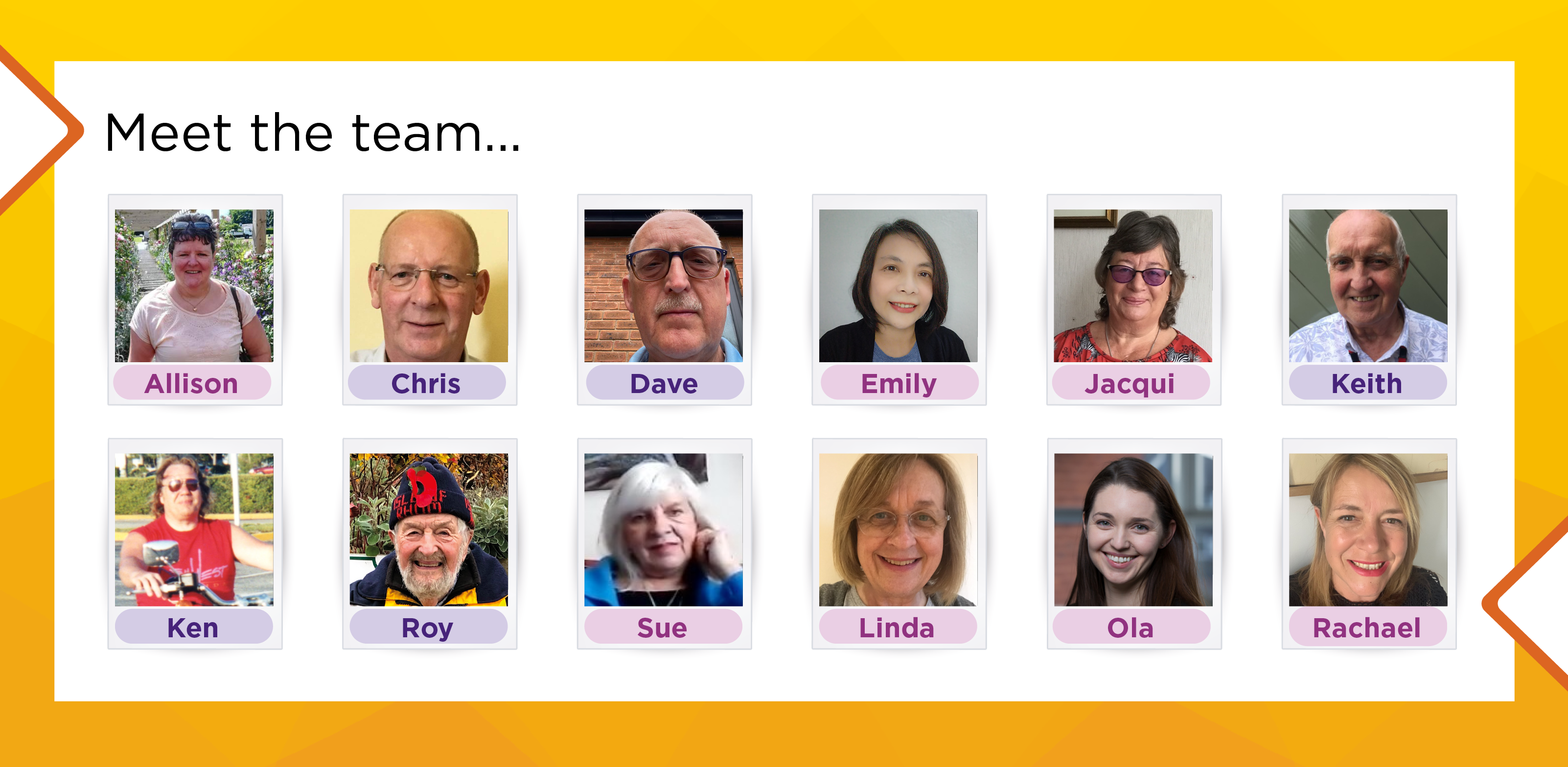









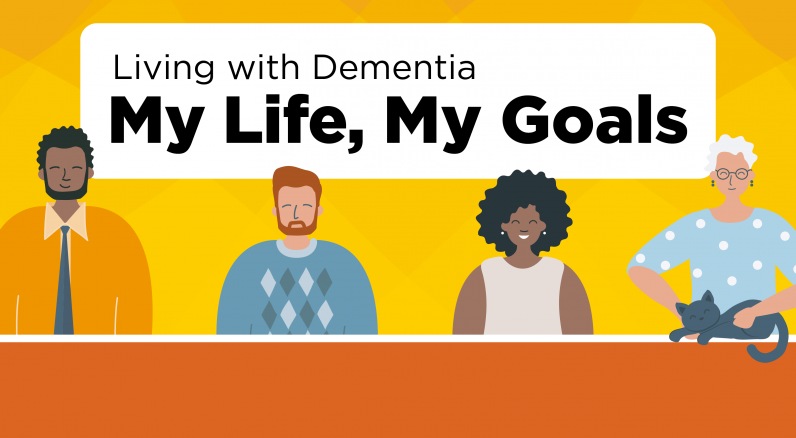
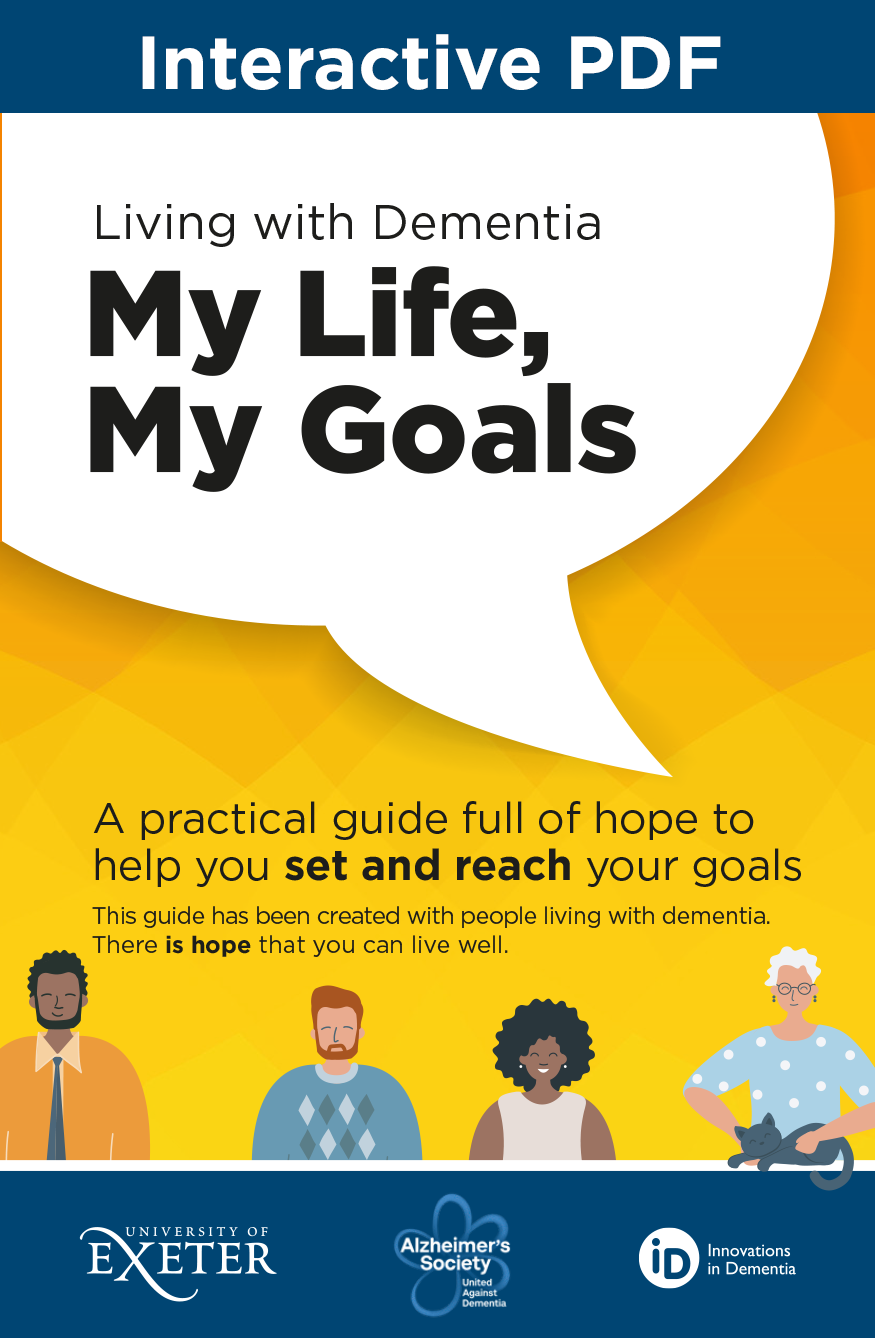
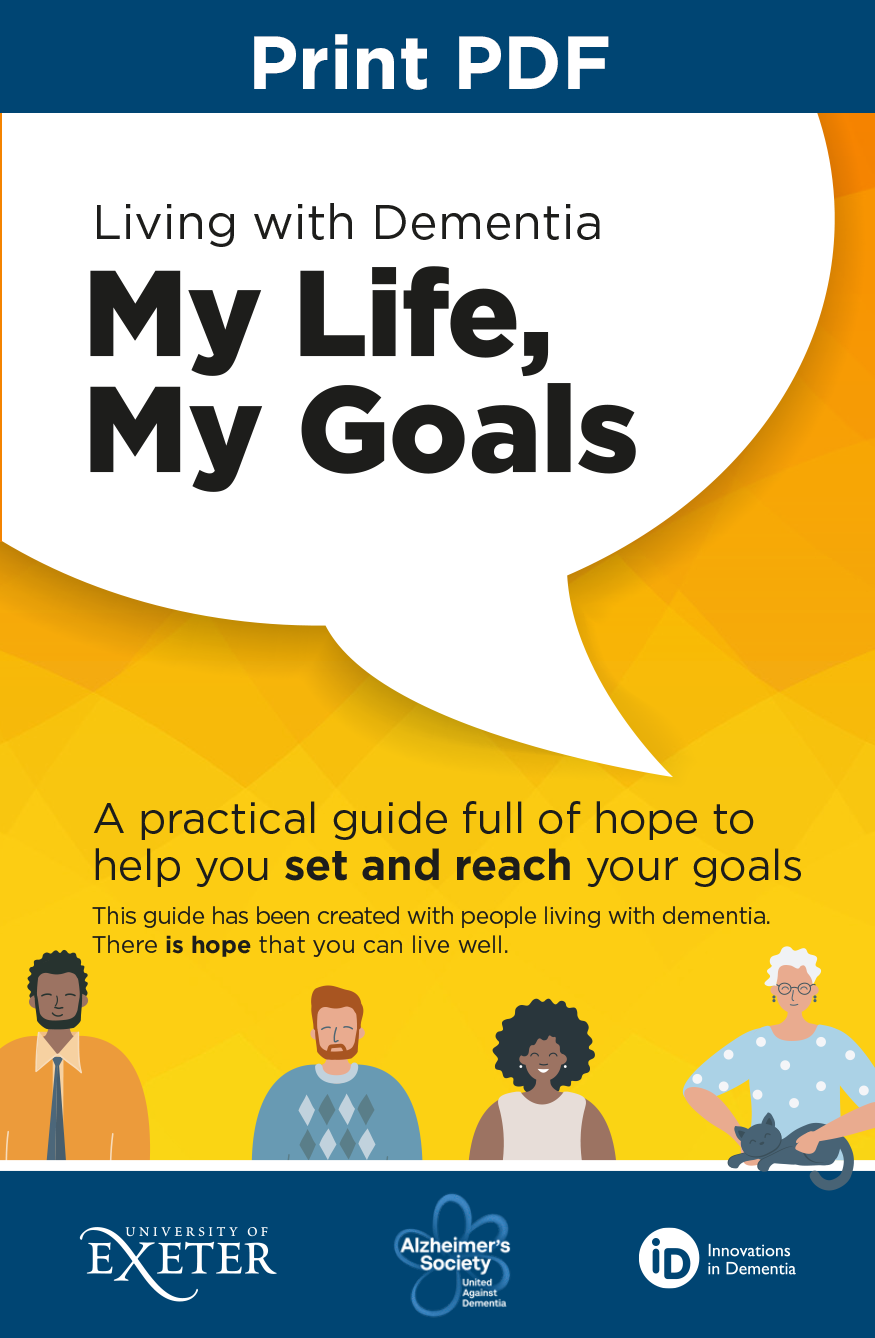
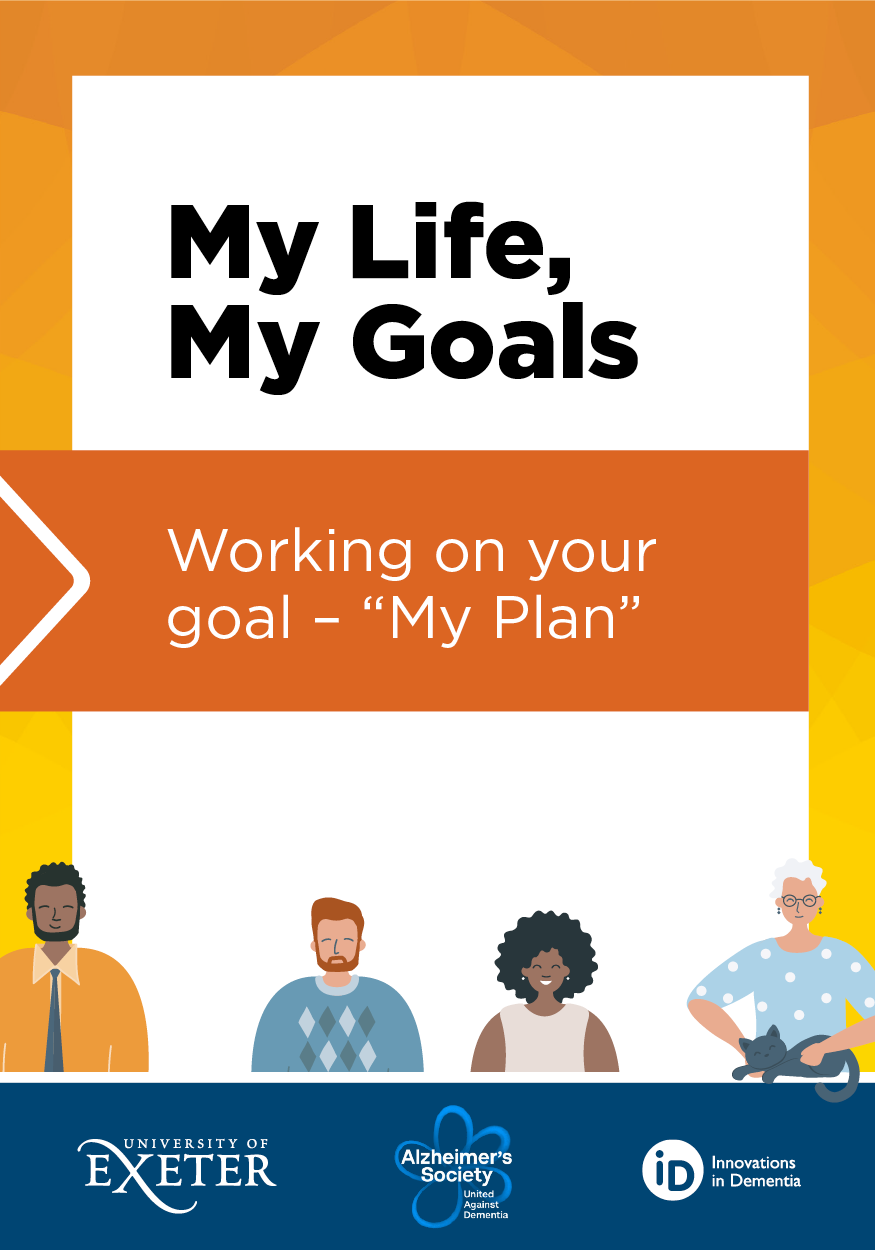

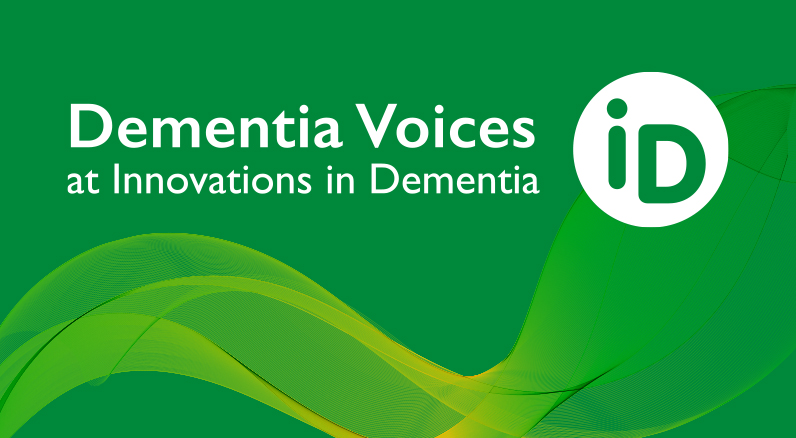

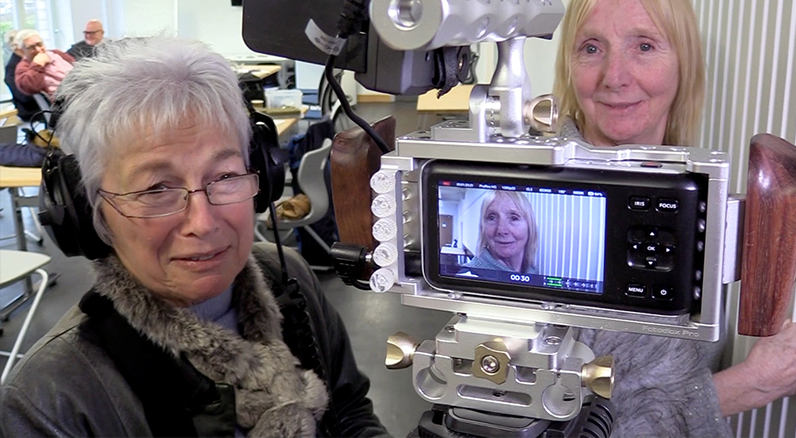
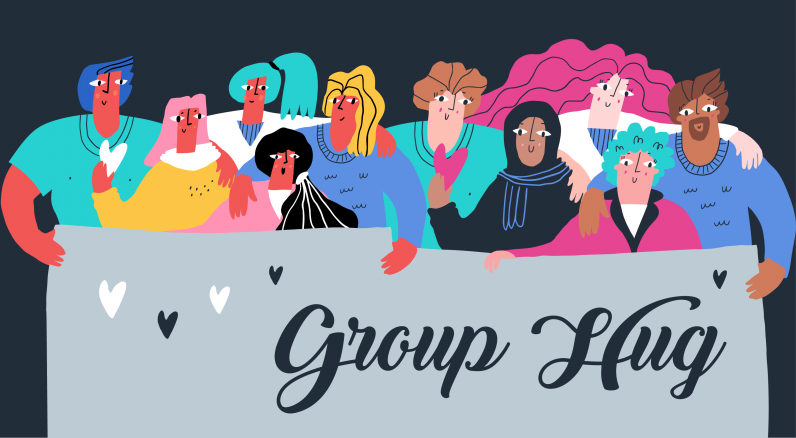


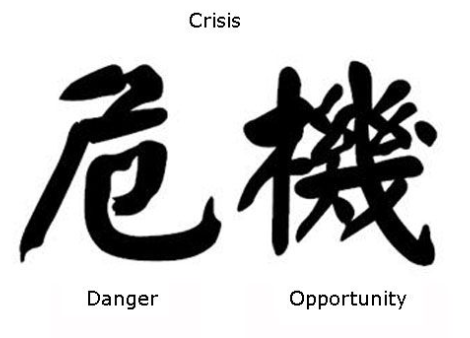 So we thought we’d take stock of where we’ve got to – and what we – in our very small organisation – are learning so far from people with dementia. We want to work with them to counter fear and uncertainty with hope, pragmatism, humour and courage. And we want to recognise that every crisis brings not only danger but opportunity – as the Chinese character for Crisis testifies.
So we thought we’d take stock of where we’ve got to – and what we – in our very small organisation – are learning so far from people with dementia. We want to work with them to counter fear and uncertainty with hope, pragmatism, humour and courage. And we want to recognise that every crisis brings not only danger but opportunity – as the Chinese character for Crisis testifies.